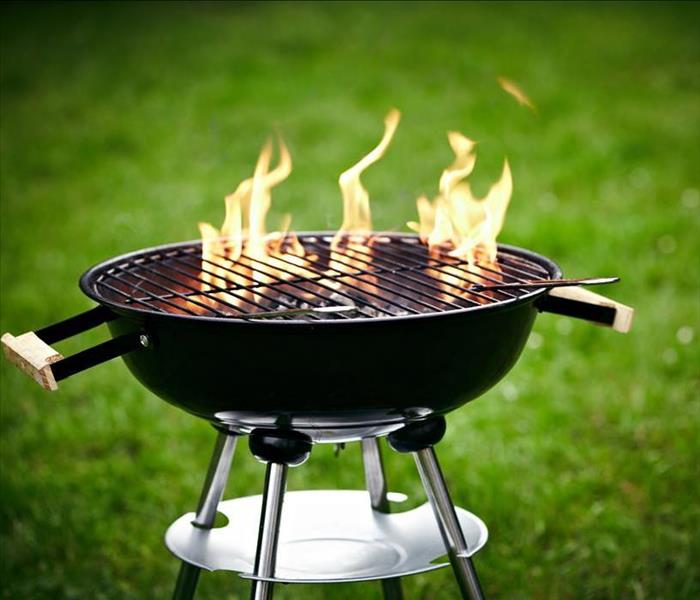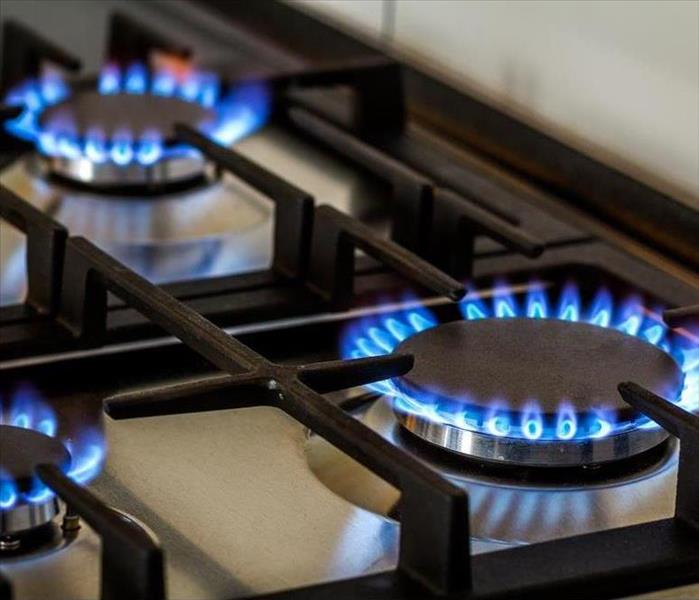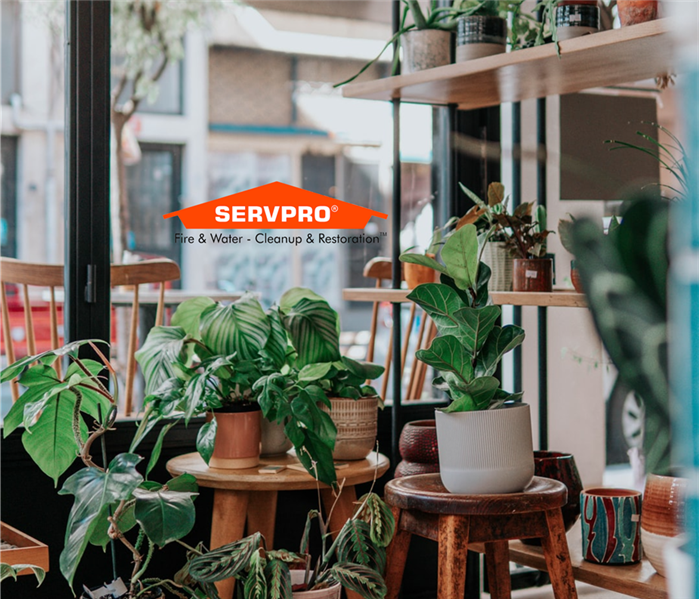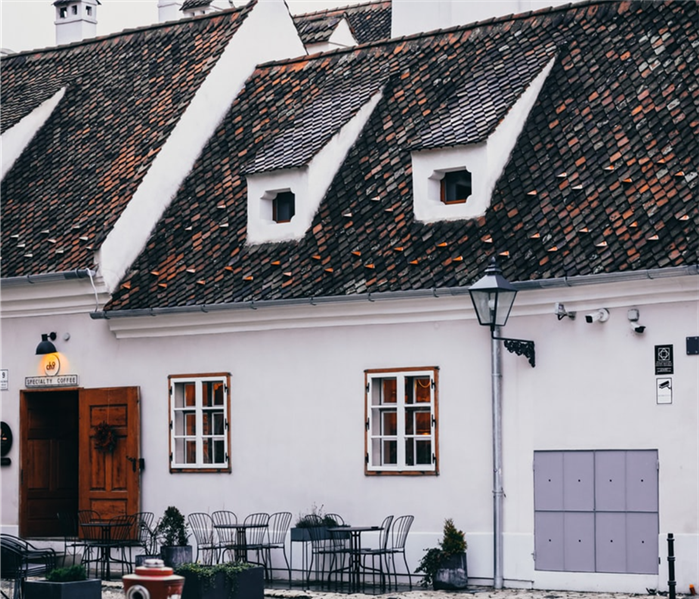Recent Fire Damage Posts
Understanding the Psychological Impact of Fire Damage
11/27/2023 (Permalink)
Experiencing a fire can be a traumatic event that leaves a lasting impact on individuals and communities. Beyond the physical damage and loss, the psychological effects of fire damage are often overlooked. In this blog, we delve into the various ways in which fire can affect the mental well-being of those impacted, highlighting the importance of addressing the psychological aftermath alongside physical restoration.
The Shock and Trauma of the Event
Fire often occurs unexpectedly, leaving individuals in a state of shock and disbelief.
The traumatic experience can lead to intense emotions, including fear, anxiety, and a sense of helplessness.
- Emotional Distress and Grief
- Loss of belongings, cherished memories, and even loved ones can trigger a deep sense of grief and mourning.
- People may experience a range of emotions, including sadness, anger, guilt, and frustration, as they navigate the aftermath of the fire.
- Disruption of Daily Routine and Sense of Security
Fires can upend daily routines and destroy the sense of security individuals have within their homes or communities.
Disturbances to sleep patterns, eating habits, and overall stability can further contribute to emotional distress
Post-Traumatic Stress Disorder (PTSD)
Some individuals may develop symptoms of PTSD after a fire, such as flashbacks, nightmares, and intrusive thoughts. PTSD can significantly impact one's mental health, affecting daily functioning and overall quality of life.
Anxiety and Fear of Recurrence
The fear of another fire occurring can lead to heightened anxiety, making it difficult for individuals to feel safe, even after physical restoration. Certain triggers, such as smoke or loud noises, may evoke distressing memories and intensify anxiety symptoms.
Social Isolation and Withdrawal
Fire damage can create feelings of isolation, as individuals may be hesitant to engage socially due to shame, embarrassment, or a sense of being different. A lack of understanding and support from others may exacerbate feelings of loneliness and withdrawal.
Importance of Psychological Support
Acknowledging and addressing the psychological impact of fire damage is crucial for individuals and communities to heal and recover fully.
Encouraging access to mental health resources, support groups, and counseling can provide individuals with the necessary tools to cope and rebuild their lives.
Fire damage goes beyond physical destruction; it deeply affects individuals' mental and emotional well-being. Understanding the psychological impact is essential in providing comprehensive support during the recovery process. By recognizing the various ways in which fire can impact individuals, we can prioritize mental health resources and foster healing, helping those affected restore not only their physical spaces but their sense of security and peace of mind as well.
Top Tips to Ensure a Safe and Effective Grill Cleaning Routine
8/19/2023 (Permalink)
 Maintaining a safe and effective grill cleaning routine is vital for the longevity of your grill and the safety of your cooking experience.
Maintaining a safe and effective grill cleaning routine is vital for the longevity of your grill and the safety of your cooking experience.
Grilling season is here, and as a homeowner, you're probably excited to fire up your grill for some outdoor culinary delights. But before you start cooking up those mouthwatering meals, it's essential to prioritize grill cleaning safety. A well-maintained grill not only enhances the taste of your food but also ensures a safe cooking experience for you and your loved ones. In this blog, we'll share valuable tips to help you establish a safe and effective grill cleaning routine. Let's dive in!
Protective Gear Comes First
When tackling grill cleaning, safety should be your top priority. Before you begin, ensure you have the right protective gear. Wear heat-resistant gloves to shield your hands from hot surfaces and prevent burns. Additionally, don't forget to wear safety goggles to safeguard your eyes from debris and cleaning agents.
Wait for the Grill to Cool Down
One of the most common mistakes homeowners make is attempting to clean a hot grill. Allow your grill to cool down completely before starting the cleaning process. A hot surface can cause severe burns and make it challenging to handle cleaning tools effectively.
Disconnect Propane Tanks or Power Sources
If you have a gas grill, remember to disconnect the propane tank before cleaning. Similarly, if your grill is electric, unplug it from the power source. This step ensures that no accidental ignition occurs while you clean the grill.
Use the Right Cleaning Agents
Choosing the right cleaning agents can make a significant difference in the effectiveness of your grill cleaning routine. Avoid using harsh chemicals that may leave harmful residues on your grill grates. Instead, opt for biodegradable, eco-friendly cleaners or make your own DIY cleaning solution using baking soda and vinegar.
Clean the Grill Grates Thoroughly
The grill grates are the heart of your grill and need proper cleaning to ensure food safety and even cooking. Start by preheating the grill for a few minutes to loosen the stuck-on food particles. Then, use a grill brush with firm bristles to scrub the grates thoroughly. For a deeper clean, soak the grates in warm soapy water and scrub away any remaining residue.
Mind Your Surroundings
Cleaning your grill outdoors is the best practice to avoid indoor fire hazards. Always ensure you're in a well-ventilated area away from flammable materials, like dry leaves or wooden structures, while cleaning your grill. This precaution will reduce the risk of accidental fires.
Check Gas Lines for Leaks
For gas grills, take a moment to inspect the gas lines and connections for leaks before use. A simple solution of soapy water applied to the connections can reveal any gas leaks through the appearance of bubbles. If you detect a leak, promptly repair or replace the affected parts before using the grill.
Maintaining a safe and effective grill cleaning routine is vital for the longevity of your grill and the safety of your cooking experience. By following these tips, you can ensure that your grill remains in top-notch condition while minimizing potential hazards. Remember, a well-cleaned grill not only brings out the best flavors in your food but also provides a safe and enjoyable grilling experience for all. Happy grilling!
5 Essential Safety Tips for Dealing with Natural Gas Leaks in Your Home or Business
4/15/2023 (Permalink)
 If you smell natural gas in your home or business, it is important to follow these safety tips.
If you smell natural gas in your home or business, it is important to follow these safety tips.
Natural gas is a commonly used energy source in many homes and businesses. However, it can also pose a serious safety risk if not handled properly. One of the most significant warning signs of a gas leak is the smell of natural gas. Here are some safety tips to keep in mind in case you smell natural gas in your home or business:
1. Leave the area immediately
If you smell natural gas, the first thing you should do is evacuate the building. Do not use any electrical appliances or light switches, as these can ignite the gas and cause an explosion.
2. Call for help
Once you are safely away from the building, call your gas company or emergency services to report the potential gas leak. They will be able to send someone to assess the situation and take the necessary precautions. It is important to remember that gas leaks are a serious safety concern, so it is crucial to call for help as soon as possible.
3. Do not attempt to fix the issue yourself
It can be tempting to try to fix the issue yourself, but this can be extremely dangerous. Natural gas is highly combustible, and even a small spark can ignite the gas and cause an explosion. It is best to leave the gas leak to the professionals who have the proper equipment and training to handle the situation safely.
4. Open windows and doors
If it is safe to do so, open windows and doors to ventilate the area. This can help to reduce the concentration of gas and minimize the risk of an explosion. It is important to note that you should only do this if you are safely away from the building and have already called for help.
5. Stay away from the building until it is deemed safe
Once you have evacuated the building and called for help, it is important to stay away from the building until it is deemed safe to re-enter. This may take some time, as the gas company or emergency services will need to assess the situation and take the necessary precautions. Do not re-enter the building until you have been given the all-clear, as there may still be a risk of explosion or other safety hazards.
In conclusion, natural gas is a valuable energy source, but it can also pose a significant safety risk if not handled properly. If you smell natural gas in your home or business, it is important to follow these safety tips to ensure the safety of yourself and others. Remember, when in doubt, always err on the side of caution and call for help.
Can Plants Save You From A Fire?
1/6/2022 (Permalink)
 Call SERVPRO of River Oaks today at 713-666-9222.
Call SERVPRO of River Oaks today at 713-666-9222.
The “home ignition zone” encompasses the house itself and everything up to 100 to 200 feet around it. Radiant heat from a severe wildfire can ignite a house from up to 100 feet away, and if there’s enough combustible material in the way, the flames themselves can quickly travel that distance. So if you happen to live in a wildfire-prone area, safeguarding just your home and the five feet surrounding it leaves significant risk on the table.
The area between 30 and 100 feet of a home is a property’s front-line defense against a wildfire. The principle guiding your preparation in this zone should be to create a “defensible space” that can prevent flames from approaching your home, and give firefighters a safe place to combat the blaze. For instance, once you remove fuel sources from the area immediately surrounding the house, the area between 30 and 100 feet out should be maintained as a “reduced fuel zone.” In this zone, plants should be spaced out, low-hanging tree branches should be pruned, and all vegetation should be watered regularly.
Steinberg notes that some homeowners go overboard when creating a defensible space by clearing the area surrounding their home of all vegetation. It seems counterintuitive, but well-spaced plant life can actually block wind-blown embers from reaching your home. A defensible space completely devoid of vegetation creates a “bowling alley” for embers.
Proof Your Roof
1/6/2022 (Permalink)
 SERVPRO of River Oaks is Here To Help.
SERVPRO of River Oaks is Here To Help.
Proof your roof
Embers from nearby wildfires often land on roofs, where they can ignite a blaze that quickly envelops the whole home. "A flammable roof will make the difference of your house being destroyed and not being destroyed, regardless of what else you do," says fire scientist Jack Cohen. The best possible protection in this case? A roof constructed from nonflammable materials like asphalt shingles, metal, slate, or tile. While wood shingles are the most common flammable roof covering material, homeowners who don’t want the hassle of reroofing can treat their wooden roofs with fire retardant, or install a rooftop sprinkler system. However, experts warn that such solutions may be inadequate—so you might want to consider changing materials altogether. A nonflammable roof is easy to achieve. If you get a typical asphalt shingle roof with a good installation, you really don’t have to worry too much.
Also note that leaves and pine needles that collect in gutters make for a dangerous ember landing bed. Make sure to clean your roof’s gutters regularly.

 24/7 Emergency Service
24/7 Emergency Service

